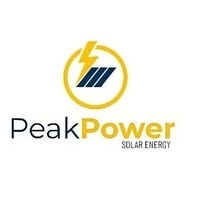China, the powerhouse of solar manufacturing, is undergoing a major policy shift. This isn’t just news for them; it’s a wake-up call for Pakistan’s solar sector. New rules in China are creating a ripple effect, and we need to talk about what it means for you.
The New Policy Framework in China
The National Energy Administration (NEA) of China introduced the Distributed Photovoltaic Power Generation Development and Construction Management Measures, which is reshaping the distributed solar market. The key regulatory changes include:
- Self-Consumption Mandate: Large industrial and commercial solar projects must now prioritize self-consumption rather than feeding surplus power into the grid.
- Market-Based Pricing: From June 1, 2025, new energy projects, including solar PV, will have their electricity prices determined through market-based transactions instead of fixed government rates.
- Grid Connection Rush: With an implementation deadline of May 1, 2025, companies are rushing to connect projects under the current framework before new restrictions and pricing models come into effect.
The Demand Surge and Supply Chain Pressure
These policy changes have triggered a race among developers and businesses to install and connect solar systems before the new rules take effect. As a result, China is experiencing an unprecedented rise in demand for solar panels and related components. This has led to several key consequences:
1. Rising Solar Panel Prices
- The urgent demand to complete projects before policy deadlines has driven up the prices of solar panels, inverters, and balance-of-system (BOS) components.
- Suppliers are prioritizing bulk orders from large developers, leaving smaller buyers struggling with increased costs.
2. Supply Shortages and Longer Lead Times
- The supply chain is under immense pressure, causing delays in manufacturing and delivery schedules.
- Raw material shortages, especially for polysilicon, have compounded the issue, leading to constrained production capacity.
3. Market Competition and Strategic Moves
- Leading solar companies, such as Trina Home, have proactively secured early grid connections and participated in green electricity trading to safeguard their market position.
- Distributors and installers are adjusting their business models to align with the new regulations and profit structures.
How This Affects Solar Prices in Pakistan
As Pakistan heavily relies on imports of Chinese solar panels and equipment, these changes will have a direct impact on end-user prices. The key factors contributing to this price surge in Pakistan include:
1. Increased Import Costs
- With Chinese panel prices rising due to high demand and constrained supply, Pakistani importers will face higher procurement costs.
- The devaluation of the Pakistani Rupee against the Chinese Yuan will further escalate costs.
2. Delays in Project Completion
- Longer lead times for equipment shipments will delay solar projects in Pakistan, affecting industries and commercial entities relying on solar energy to cut electricity costs.
3. Higher Installation Costs
- The increased cost of solar panels and components will make projects more expensive for businesses and households in Pakistan.
- Local installers and EPC contractors will be forced to pass on these costs to end users.
Peak Power’s Strategic Response
Peak Power, by using the strategic leadership of Robox Group, is actively navigating these challenges to ensure continued access to affordable solar solutions in Pakistan. Here’s how:
- Diversifying Supply Chains: Peak Power is exploring alternative sourcing strategies to mitigate reliance on a single market.
- Enhancing Local Manufacturing: Investments in localized production of mounting structures and BOS components are helping to stabilize costs.
- Smart Procurement Strategies: By leveraging bulk procurement and strategic partnerships, Peak Power is ensuring a steady supply of solar panels for industrial and commercial consumers.
- Advisory Services for Clients: Businesses and industries are being guided on optimizing self-consumption strategies to maximize solar energy benefits.
Call to Action
With China’s evolving solar policies causing ripples across the global market, it is essential for businesses and policymakers in Pakistan to act proactively. Peak Power, with the solid foundation of Robox, is committed to securing cost-effective solar solutions, ensuring minimal disruption to Pakistan’s renewable energy transition. For businesses and industrial clients looking to secure stable solar energy pricing, now is the time to act.
Contact Peak Power today to explore customized solar solutions and stay ahead of market disruptions!


